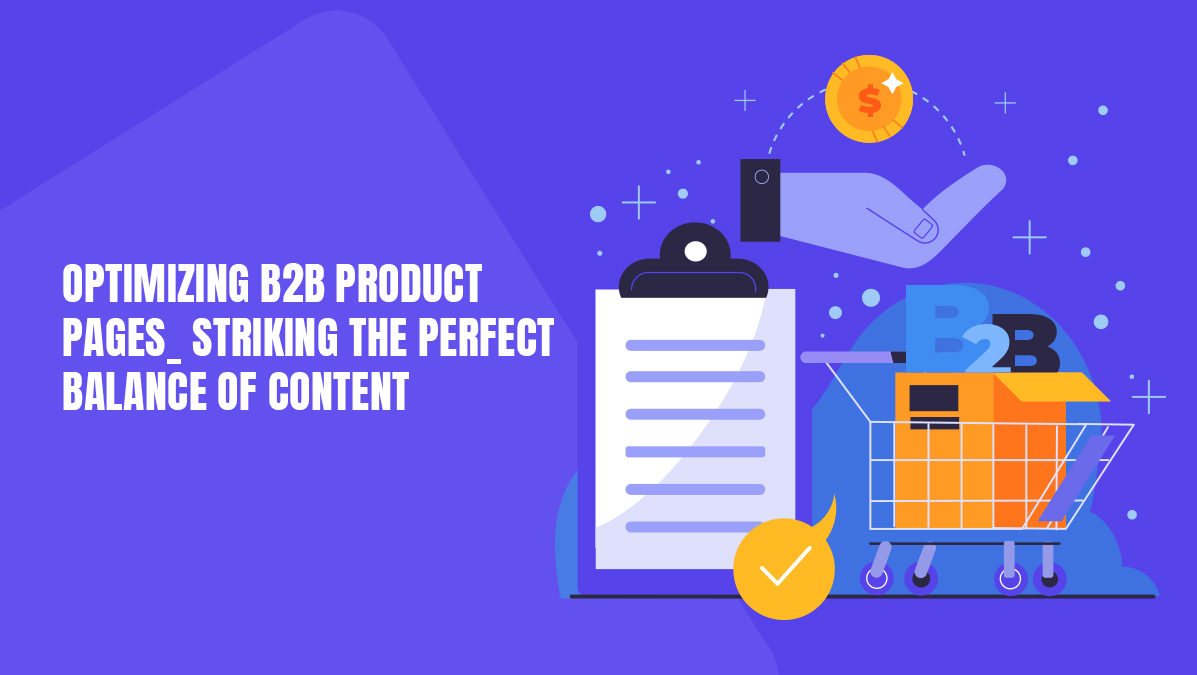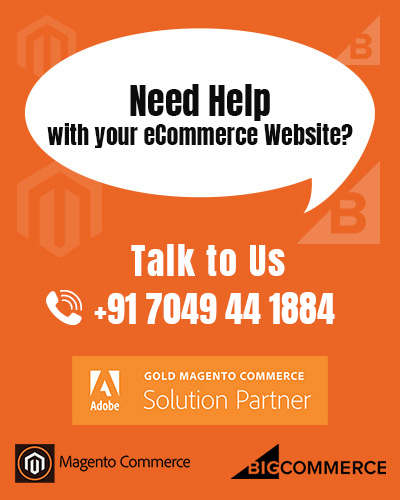Developing or creating product pages requires more than just brevity; and is a challenge for digital creators. Our analysis of top-performing B2B product pages revealed that shorter isn’t always better.
Why are these pages so crucial, you may ask? Well, they directly drive sales, making them a pivotal aspect to study for your business.
If you invest efforts in constructing compelling product page content, you can reap significant benefits in terms of sales conversions and website traffic. It’s important to acknowledge that the quality of your product page content, along with captivating visuals and intuitive navigation, can either make or break your online store.
The most effective B2B product pages are designed to captivate users’ attention and instill confidence and loyalty in your brand. If you’re eager to optimize your presence on search engine result pages (SERPs) and align your content with users’ search intent, we encourage you to explore the B2B product pages we analyzed.
This exploration will provide valuable insights into determining the ideal amount of content for your product pages.
Now, let’s delve into the key elements you should prioritize when designing content for your product page, based on the comprehensive data we have gathered.
Essential Factors to Consider for Product Pages
As you progress through the vast expanse of the internet, have you ever observed the repetitive structure of product pages across different websites?
To ensure an optimal user experience, it is imperative to prioritize the layout, design, and functionality of your product pages. However, it doesn’t stop there. Designing and developing a compelling narrative and storytelling is equally vital. It is crucial to construct a coherent brand narrative that effectively communicates to users how your B2B product can significantly enhance their lives.
By addressing these key aspects, you can cultivate a product page that not only attracts users but also establishes a strong connection with your brand or online business, ultimately showcasing the inherent value of your products or offers.
Ensuring your product page content includes vital details is crucial. Here are five indispensable components that should be incorporated:
- Captivating Visuals: Add clear and attention-grabbing product images that are sizable and instantly draw the viewer’s interest. It is also recommended to enable zoom functionality for images and includes videos showcasing the product in action.
- Compelling Product Description: Engage your audience by clearly communicating why they need your product. Write persuasive content that converts visitors into customers by emphasizing the unique value your product offers.
- SEO Schema: Implementing schema markup enables search engines to understand and display your product information accurately. By leveraging schema, you can enhance your visibility on search engine result pages (SERPs) and effectively compete with other brands in your industry.
- Call-to-Action (CTA) Button: The ultimate objective is to convert users into buyers. Encourage their action by prominently featuring an “Add to Cart” button that guides them seamlessly through the purchasing process.
- Ratings, Reviews, and FAQs: Enhance customer confidence and facilitate informed decision-making by including customer ratings, reviews, and frequently asked questions (FAQs). Research indicates that a significant 77% of customers regularly read reviews, highlighting the importance of providing additional information that boosts the chances of conversion.
These elements lie at the heart of the user experience, shaping the perception and desirability of your products. Flaws in your landing pages can have detrimental effects on your brand, as the content and user experience heavily influence a user’s purchasing decision. Once you have established an optimal page layout that effectively showcases your product, maintaining a consistent style across your collections will contribute to an elevated user experience.
Insights on Product Page Content
If you’re wondering whether adopting a minimalist approach to your product pages will adversely impact their performance, we have gathered valuable data from five companies with top-trafficked product pages. By examining the outcomes associated with varying content lengths, we aim to guide you in creating and developing exceptional B2B product pages.
Stay tuned to discover how different types of content influence the effectiveness of your product pages and obtain insights that will empower you to optimize your approach.
Our in-depth analysis focused on scrutinizing the B2B product pages of prominent Software-as-a-Service (SaaS) companies. The following industry-leading entities were carefully examined:
- Microsoft Azure
- Dropbox
- Asana
- Mailchimp
- Klaviyo
By looking into their respective B2B content strategies, we uncovered valuable insights that shed light on their approaches and practices. The data we gathered provides a comprehensive understanding of how these companies optimize their product pages to effectively engage their target audience.
- Microsoft Azure:
The product page of Microsoft Azure, which attracts a significant volume of traffic, showcases a captivating image that effectively portrays the offered service—text-to-speech services.
Notably, this page incorporates several elements that we previously highlighted as beneficial for enhancing product page content. These include a prominently featured image, a compelling call-to-action (CTA), and a comprehensive product description accompanied by a mock demo.
Such meticulous attention to detail has contributed to the page’s impressive ranking for more than 5,000 relevant keywords. As a result, the URL traffic value associated with this page amounts to a substantial $31,800.
- Dropbox:
Dropbox has established itself as a standout example of an exceptional B2B product page by effectively illustrating the advantages of utilizing its organized cloud space for file management.
Comprising approximately 650 words, this meticulously crafted page not only presents compelling testimonials but also offers a visually engaging, step-by-step tutorial. Additionally, it provides users with a comprehensive range of resources tailored for both personal and professional utilization of the software.
Through such informative content, Dropbox effectively showcases how its innovative solution simplifies and streamlines workflows, ultimately enhancing user productivity. This powerful messaging strategy has yielded remarkable results, positioning Dropbox favorably in search engine rankings for nearly 200 relevant keywords.
Consequently, the page receives a substantial amount of organic traffic, with 738 visitors. The URL itself possesses significant value, estimated at $379, indicating the substantial impact of this well-executed B2B product page.
- Asana:
Asana’s product page exemplifies a minimalist approach with concise content, containing fewer than 300 words. The company’s emphasis on a clean and user-friendly design has yielded impressive results, securing a remarkable ranking for 320 relevant keywords, with an organic keyword ranking of nearly 500.
The page’s effectiveness can be attributed to key elements such as the clearly expressed product description, strategically placed call-to-action (CTA), and an accompanying image highlighting the essential functionalities of its forms.
By adeptly articulating how these forms can enhance workflows, Asana successfully communicates the value proposition to its audience. This well-executed content strategy has contributed to the page’s significant URL traffic value, amounting to an estimated $113.
Through a streamlined approach and a focus on conveying the unique benefits of its forms, Asana has successfully captured the attention of its target audience, generating meaningful traction and fostering user engagement.
- MailChimp:
A significant portion, approximately 25%, of small retail businesses without a website express their uncertainty about where to initiate their online presence.
Mailchimp serves as an invaluable resource by offering an all-in-one marketing platform that includes a comprehensive website builder. With an extensive word count exceeding 1,000, this particular Mailchimp page demonstrates exceptional performance in search engine rankings, appearing for an impressive 5,315 relevant keywords.
Moreover, its exceptional organic traffic surpasses 62,000 visitors, reflecting its popularity among users. The URL itself possesses substantial value, estimated at $266,900, further emphasizing the significance of this page.
One of the key highlights of this page is its comprehensive explanation of the content personalization process, encompassing various aspects such as styling and refining product page content. Additionally, Mailchimp incorporates other recommended elements to enhance user experience, including an informative video, an FAQ section, and compelling testimonials.
These components work in harmony to provide users with a comprehensive understanding and support throughout their journey. By delivering such a comprehensive and user-centric experience, Mailchimp effectively addresses the concerns and needs of small retail businesses, offering them valuable tools and insights to establish and optimize their online presence.
- Klaviyo:
In order to showcase its robust email marketing capabilities, Klaviyo effectively highlights how users can leverage their platform to optimize email-driven revenue on one of their B2B product pages.
With concise content comprising just under 500 words, this page has played a pivotal role in securing a favorable ranking for nearly 300 keywords. Notably, the URL associated with this page possesses a significant traffic value, estimated at $390.
Klaviyo’s product page employs various strategic elements to captivate and inform its audience. Engaging workflow images and testimonials from satisfied users’ peers are incorporated to bolster credibility and provide social proof.
Additionally, Klaviyo offers a demo feature, enabling users to swiftly familiarize themselves with the platform’s email marketing functionalities. By skillfully integrating these components, Klaviyo effectively communicates the value proposition of its email marketing solution.
Through a user-friendly and informative product page, Klaviyo empowers businesses to maximize their email marketing potential, driving better revenue generation.
Key Insights from Data Analysis
Our data analysis revealed significant findings regarding the impact of content length on the success of product pages. Contrary to the notion that minimalistic content is always preferable, we observed that sites with maximalist product page content experienced greater success compared to those with minimal content.
Among the websites examined, Mailchimp emerged as the leader, boasting the highest word count on their B2B product pages and consequently attracting the highest organic traffic. Additionally, Mailchimp exhibited an exceptional traffic value of $266,900, further reinforcing the correlation between extensive content and positive outcomes.
These findings dispel the misconception that SaaS B2B product pages should adhere to minimalism. Instead, it is advantageous to incorporate content in innovative formats, such as FAQ, testimonial slideshow, and other creative elements, while maintaining the modern look and feel of a website.
This approach ensures a diverse range of content without compromising visual appeal. Following Mailchimp, Microsoft Azure demonstrated a commendable word count of 934 on their product page, positioning them as a close contender.
On the other end of the spectrum, Asana stood out as the second lowest-trafficked website, with a mere 239 words on their product page. The consequences of this minimalistic approach were apparent, as Asana ranked for only 320 keywords and witnessed organic traffic of 489. The absence of noteworthy UX highlights further contributed to the page’s subdued performance.
Based on the research, it is recommended that SaaS websites aim for a word count of approximately 1,000 to 1,200 words on their product pages. Alternatively, aspiring to achieve a content length similar to Mailchimp’s substantial 1,500-word count can yield favorable results.
Conclusion,
In summary, our analysis underscores the importance of striking a balance between comprehensive content and a visually appealing user experience. By incorporating an optimal content length, SaaS websites can maximize their visibility, keyword rankings, and organic traffic, ultimately driving success in the highly competitive digital space.
The content of your product pages plays a vital role as a persuasive sales tool on your website.
- Ensure that your pages are optimized and regularly updated, as even a page with a basic user experience can effectively provide users with the desired information.
- If you’re uncertain where to begin, consider examining patterns followed by your competitors or refer to the examples derived from data analysis.
- The finest B2B product pages demonstrate their effectiveness through impressive traffic-to-conversion rates, thereby bolstering sales and raising brand awareness.
- Monitor your website’s traffic and metrics to gauge the extent to which your product pages effectively convey a compelling narrative about your products.
Transform website visitors into loyal customers with conversion tracking. Trust 18th Digitech, your premier digital marketing agency in India, for expert assistance.









 About 18th Digitech
About 18th Digitech Awards and Credentials
Awards and Credentials Our Partners
Our Partners
